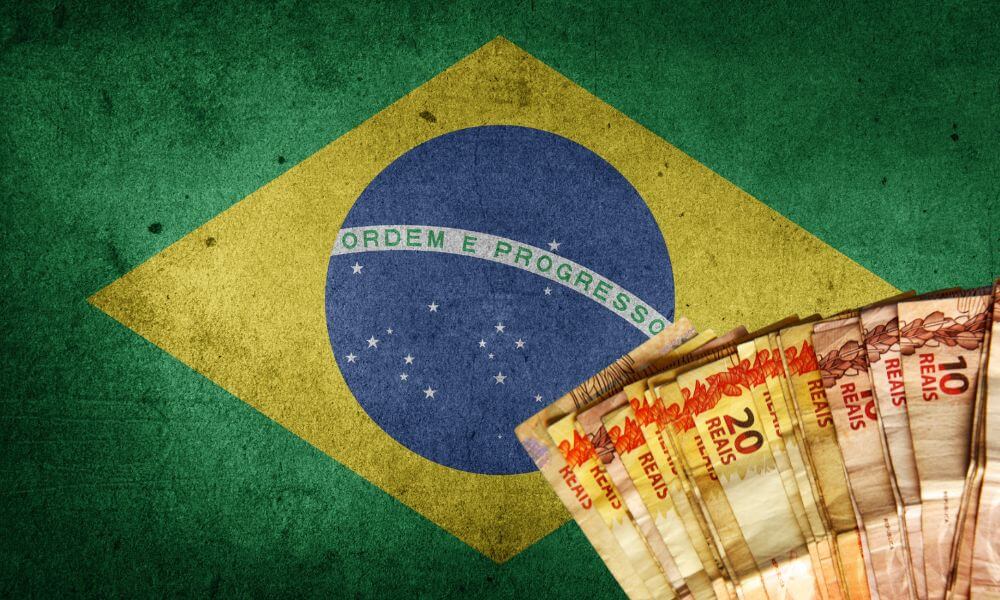The currency of Brazil is the Brazilian Real. This is the official currency of the nation and is divided into 100 centavos. Brazil’s Central Bank is the issuing authority of the Real and there have been a great many iterations of the Real since before the country’s independence.
Brazil’s currency has been the Real for many centuries, then, but this present form of the Real has been in use only since 1994.
The history of the currency in the country is one of a great deal of change back and forth between different things not least due to Brazil’s turbulent historical past.
Let’s find out more.

What is the currency of Brazil?
The official currency of Brazil is the Brazilian Real.
This current Real has been in use since 1994, when it was made the official and lasting currency of the nation.
Before that, there have been a great many different currencies used over the centuries since the arrival of the Portuguese and the formation of their colony.
The earliest version of this currency that we know of was called the Portuguese real which was in use from the 16th to the 18th Centuries, naturally a colonial currency.
From 1747 until 1942, the currency was what we now call the old Brazilian Real. From 1942 untio 1994, the country used variations of the cruzeiro or cruzado.
The modern currency, then, was introduced in 1994 to replace the cruzeiro real which had been in use only from 1993 to 1994.
As part of a broader plan to stabilize Brazil’s economy, president Itamar Franco and Minister of Finance Rubens Ricupero introduced the modern Real.
The cruzeiro was demonetized and there was a need for a massive replacement of bank notes in the early period.
Exchange rates were at first tightly controlled all as part of the plan to get the economy stable.
The value against the dollar has typically been the standard for the exchange rate, as it is in many South American nations.
Dollars are not legal tender in Brazil and generally not accepted, but at the same time there is certainly a considerable circulation of American dollars in Brazil.
Early after the introduction of the Real, in 1994-5, it would see its greatest value against the dollar at about US$1.20 to R$1.
Since then, the value has fluctuated a lot but ultimately followed a downward trend.
What is the best currency to take to Brazil?
The best currency to take to Brazil is naturally the Real, then, but the question is a bit more complicated than that.
You will, there is no question, need Real to pay for things in Brazil.
However, your options for exchange rates are going to be fairly limited depending on where you are, and certainly if you are outside of the Americas.
Your best option, then, is likely going to be to convert your own local currency into US dollars, and then take those dollars to Brazil to have them converted to Real.
You will get good exchange rates on US dollars virtually wherever you are, and you’ll get good exchange rates in Brazil between the Real and the Dollar.
You may struggle to convert things like Euros or Pounds Sterling, though it will of course not be impossible—but you’ll certainly not get the same advantageous exchange rates as you would with the dollar.
So, American Dollars are going to be your best option for what to take to Brazil, then convert them to Real locally.
It is often a question, though, of whether there are any other currencies accepted in Brazil as it’s commonly said that dollars themselves are simply used.
Is any other currency accepted in Brazil?
Legally speaking, the Real is the only currency accepted in Brazil.
Again, there’s no reason to take any sort of gamble with it: get your dollars converted to Real and use that as your currency while you are in the country.
That said, U.S. Dollars are indeed widely circulated around Brazil, and in some places they are used and accepted; though again, this is not an entirely legal practice and so not something you should take the risk with.
In some places, on the borders with other nations, you may find that other South American currencies like Bolivianos or Peruvian Sol are sometimes accepted—but, again, just don’t take this chance.
Is Brazil cheap?
This is always a relative question and it’s also important to remember that Brazil is a staggeringly large country.
There are many different areas of vastly different economic stability and affluence, and so how “cheap” a given place is will always depend on this.
Compared to, say, major U.S. cities, most of Brazil is likely to appear quite cheap, but in general there really is no easy answer to this question.
So, the short answer is yes, Brazil could be considered quite cheap, but only in a very loose sense.
Today, then, the official currency of Brazil is the Real, as it has been since 1994.
Many different forms of currency have been used in Brazil over the centuries but seemingly the nation has now settled on its official currency.
It’s a complex political picture to explain why it has changed so much but ultimately all you need to know if you’re travelling there is that you’ll need Real, and likely the easiest currency to use for conversion is going to be US Dollars.

